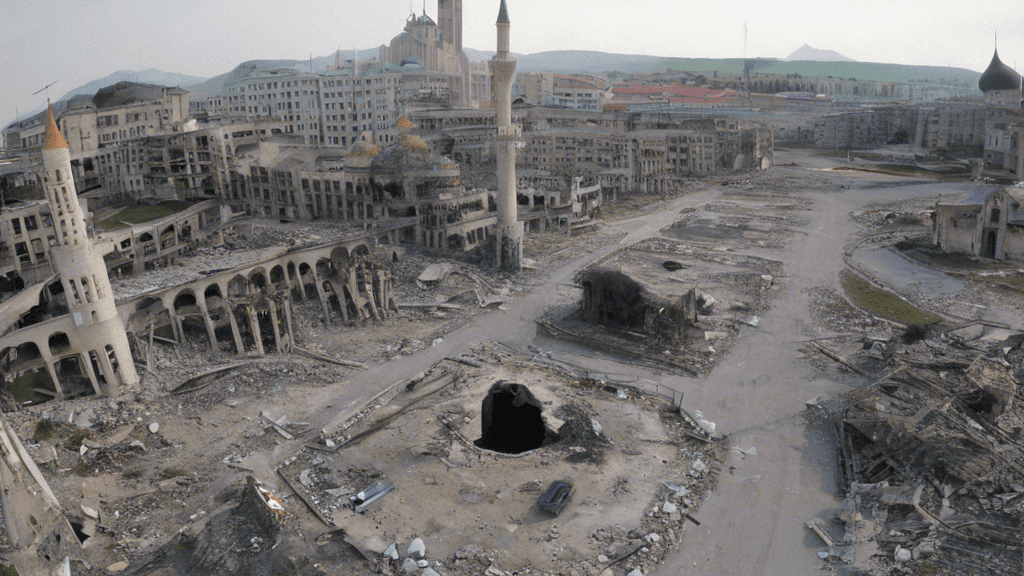Overview of the Drone Attack in Chechnya
On October 29, 2024, a first-of-its-kind drone attack shook the Chechen region at the Russian Special Forces University, commonly known as the University of Spetsnaz. Located in Gudermes, this facility is notorious for being a training ground for elite military personnel. The incident marks a significant moment not just due to its location but also due to the broader implications surrounding it.
The Details of the Attack
The attack occurred early in the morning at 6:30 a.m., resulting in a fire on the roof of an unoccupied building within the university campus. Thankfully, there were no reported casualties or injuries, and the fire was quickly extinguished. This facility, which bears the name of President Vladimir Putin, boasts a variety of amenities—from swimming pools to classrooms—making it a symbolic target in the ongoing conflict that encapsulates the current geopolitical climate.
Responses to the attack were quick, with Chechen leader Ramzan Kadyrov promising a strong retribution, indicating that Chechen fighters would intensify their efforts in the ongoing military operations. Kadyrov’s comments highlight a personal touch to the conflict, as he emphasized the Cloud of vengeance that loomed from Chechen soil against those who dared to attack it.
Implications and Strategic Value
But this incident isn’t just about local emotions; it also signifies a shift in military dynamics. The attack underlines Ukraine’s burgeoning capability to conduct long-range drone strikes, with Gudermes located approximately 780 miles from Odesa—a poignant reminder of the vast reach these modern drones can achieve. The implications for Russian air defenses are enormous, raising questions about how well-prepared they are to counter such long-range maritime threats.
Kadyrov has also acknowledged that investigative agencies are working to find the culprits behind this attack. Interestingly, this drone strike isn’t isolated, but rather, a part of a larger Ukrainian campaign targeting military facilities linked to Russia’s aggressive maneuvers in Ukraine, including airfields and ammunition supplies.
Let’s not forget the darker aspects that surround this entire scenario. The very forces under Kadyrov’s command have been accused of severe human rights violations throughout the conflict in Ukraine, including torture and extrajudicial killings – a reality that casts a long shadow over any anticipated retaliatory actions. All these dynamics create a tense backdrop that adds complexity to what we can expect in the immediate future.
In essence, this drone attack in Chechnya isn’t just a local event; it reverberates with significant symbolic and strategic implications, both for Ukraine and Russia. As we continue to follow developments in this situation, one thing remains clear: the landscape of warfare is changing, and so too are the stakes involved for all parties in this heated conflict.
